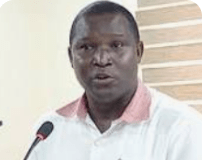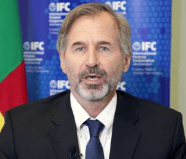By Buertey Francis BORYOR
The Professor Alexander Adum Kwapong Lecture sixth session, themed ‘Green Wins: Fostering a Better Dialogue toward Sustainable, Inclusive Natural Resource Governance’, has been held at the University of Ghana (UG) in Accra.
The seminar, organised by UG in collaboration with the United Nations University Institute for Natural Resources in Africa (UNU-INRA) in memory of the University of Ghana’s First African Vice Chancellor, Professor Alexander Adum Kwapong, was to mitigate natural resources’ climate change impacts through inclusive natural resource governance.
It enabled a slew of well-founded recommendations and a call to action on issues concerning the use of natural resources in order to achieve sustainable development.
Mr. Charles Abani, United Nation Resident Coordinator in Ghana, gave a keynote presentation and emphasised the importance of addressing current problems pertaining to the disparities between environmental preservation and economic development, as well as personal and political interests in the country.
“Energy consumption models have to be recalibrated in order to make things happen. We really need to address these questions on responsible production and consumption, we simply cannot go on with endless consumption in a world with finite resources. We must address the imbalances that exist, find the finance, leverage technology and innovation because they offer huge opportunities.”
He also underlined the importance of developing trust, implementing creative local concepts in addition to international comparative models, and enforcing behavioural compliance and monitoring when it comes to managing our environmental resources.
Speaking as well, Prof. Tshilidzi Marwala, Rector-United Nations University, urged the youth to unite as a single voice and work toward revolutionising the leadership narrative by pressuring Ghana’s and Africa’s current leadership to prioritise and take into account the needs of today’s youth.
Also, a panellist at the seminar, Dr. Christine Okoe Asare, Deputy Director for Strategic Environmental Assessment, underlined the need for a shift in societal attitudes regarding the misuse of natural resources – citing examples such as continuous fishing without breaks and illegal mining known as Galamsey.
The UNU-INRA is one of the United Nations University’s (UNU) 15 research and training centres, focusing predominantly on Africa. It serves as a platform to amplify the continent’s voices and showcase made-in Africa solutions. It also strengthens and develops capacities by equipping the continent’s researchers, entrepreneurs and policy-actors with the requisite knowledge to sustainably manage natural resources.









